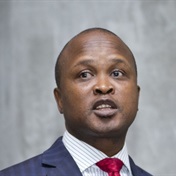
One thing observable since the outbreak of the Covid-19 pandemic is that this virus is impossible to spin. All leaders who sought to miscommunicate this virus are already on the wrong side of history, writes Ralph Mathekga.
The only thing worse than a disaster is bad communication.
Bad communication can bear the negative impact of the ability of nations to respond and deal with an impending disaster.
Mis-communicating and under-communicating disaster make all the difference when it comes to how nations pass through disaster and begin to rebuild their societies.
The communication regarding the novel coronavirus in South Africa is troubling.
Government is unable to take the nation into its confidence when it comes to its strategies to manage the spread of the virus and consequently the basis of some of the regulations that have been implemented under one of the harshest lockdowns in the world.
It was clear that a plethora of court litigations were going to pop up to challenge some elements of the coronavirus lockdown regime currently underway in South Africa.
Government finds itself in a difficult place - how much truth should they tell the nation about what we are truly facing, as newspaper reports are coming out.
There is a suspicion that government is planning for a serious disaster where makeshift hospital beds will be necessary and possible mass burials.
The messages keep coming from government that the peak of the virus is coming in September. The implications of this are hardly confronted openly.
This could mean that the virus might rise aggressively until that time. This further says that we should prepare for disaster, which is the worst-case scenario.
It might be the case that government cannot do anything further to avoid mass infections and possible mass deaths.
As some scientists are beginning to say, the lockdown must be maintained to manage some level of outbreak. However, it will not stop mass infection and possible mass deaths, they say.
If this is the picture we face, then it would be better for government to take the nation into its confidence and communicate this to ensure that the nation is ready and prepares better.
It could be the case that things could be worse had we not opted for the hard lockdown.
The problem now is about the reality that is coming our way and the usefulness of the strategy we have in place to mitigate the effects and manage the impact better.
As far as many people are concerned, the lockdown should have served its purpose of slowing the spread of the virus. That has not been accomplished to satisfaction.
Therefore, continuing with the hard lockdown while the virus is spreading further is senseless, unless it can be established the virus would spread more without a lockdown.
Such determination should be made.
It is important therefore that government openly communicate information about its projected sense of infection rate and mortality rate given our conditions, so that people will begin to understand that even if the virus is spreading aggressively, it would be worse without the lockdown, if that is the case as far as government is aware.
By keeping information away from the public, government has created a situation whereby everyone is navigating blind except for government, and yet everyone must cooperate with government.
Inequitable access to information between government and the people results in inequitable levels of commitment to the plan at hand, with some communities not understanding why they are being required to behave in a prescribed way for this moment.
There is no national cohesion on the lockdown in South Africa, despite the public relations exercise on this.
One thing observable since the outbreak of the Covid-19 pandemic is that this virus is impossible to spin. All leaders who sought to miscommunicate this virus are already on the wrong side of history.
Honesty is key in managing the pandemic and it is a missing link in our politics in general.
In our case as a country, we should avoid the situation where the management of the virus by our political system becomes more lethal to us as a nation than the biological threat posed by the virus to our bodies.
- Dr Ralph Mathekga is a political analyst and author of When Zuma Goes and Ramaphosa's Turn.




 Publications
Publications
 Partners
Partners























